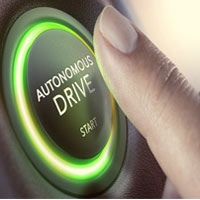 With Google, Tesla, and Uber rolling out self-driving cars, autonomous technology seems to be the way of the future. Yet, according to new research conducted by the American Automobile Association (AAA), Americans are not fully convinced that self-driving cars are safe.
With Google, Tesla, and Uber rolling out self-driving cars, autonomous technology seems to be the way of the future. Yet, according to new research conducted by the American Automobile Association (AAA), Americans are not fully convinced that self-driving cars are safe.
In a recent study, 73 percent of citizens polled said they were “too afraid” to ride in an autonomous vehicle. The lack of comfort with new technology may have something to do with several high-profile fatal collisions involving self-driving cars.
For example, earlier this year in Arizona, a woman walking her bicycle across the street was hit by a self-driving car. On-board camera footage later showed the back-up human driver was looking down at the time of the crash. This past spring, another self-driving car, functioning on “Autopilot,” crashed into a concrete barrier and burst into flames, killing the human driver.
The Safety Promise of Self-Driving Cars
Despite these newsworthy accidents, many auto industry experts and manufacturers hail driverless cars as the answer to ending traffic fatalities in this country. One study on the subject estimates that by using autonomous cars and driver-assist technology to eliminate human error, highway fatalities could be reduced by as much as 90 percent. That equates to nearly 30,000 lives saved. In many self-driving car accidents, the technology was not at fault; the human driver was.
The Skeptical Public
Despite this optimistic outlook for the future of driverless cars, Americans are not yet on board. Sixty-three percent of American consumers feel less safe riding their bikes or walking around self-driving cars. Women are more hesitant to try autonomous vehicles than men. Further, Baby Boomer and Generation X drivers tend to feel less secure than millennials.
Finding the Balance Between Innovation and Safety
Self-driving technology is extremely complex, incorporating several different types of artificial intelligence to detect objects approaching the vehicle, identify the type of object, and determine how to approach it. The first autonomous car hit the road in 2009 and several different companies have continued developing and testing them across the globe ever since.
Driverless cars require real world scenarios to see how they will function, to perfect the technology to reach that goal of zero fatalities many industry experts believe is possible.
With real world scenarios, unfortunately, also comes the potential for real world accidents. Yet, with time and exposure to driverless cars, American consumers may eventually become more inclined to hand over the wheel.
Media Personal Injury Lawyers at Eckell Sparks Represent Injured Car Accident Victims
Even with innovative driverless technology, some car accidents are unavoidable. When self-driving cars interact with humans on American roadways, the risk of human error will always exist. Media car accident lawyers at Eckell, Sparks, Levy, Auerbach, Monte, Sloane, Matthews & Auslander, P.C. have extensive experience litigating all types of motor vehicle collisions. Call 610-565-3701 or contact us online to schedule a free initial consultation. With offices in Media and West Chester, Pennsylvania, we serve clients throughout the Philadelphia metropolitan area, including Delaware County, Chester County, and Montgomery County.

